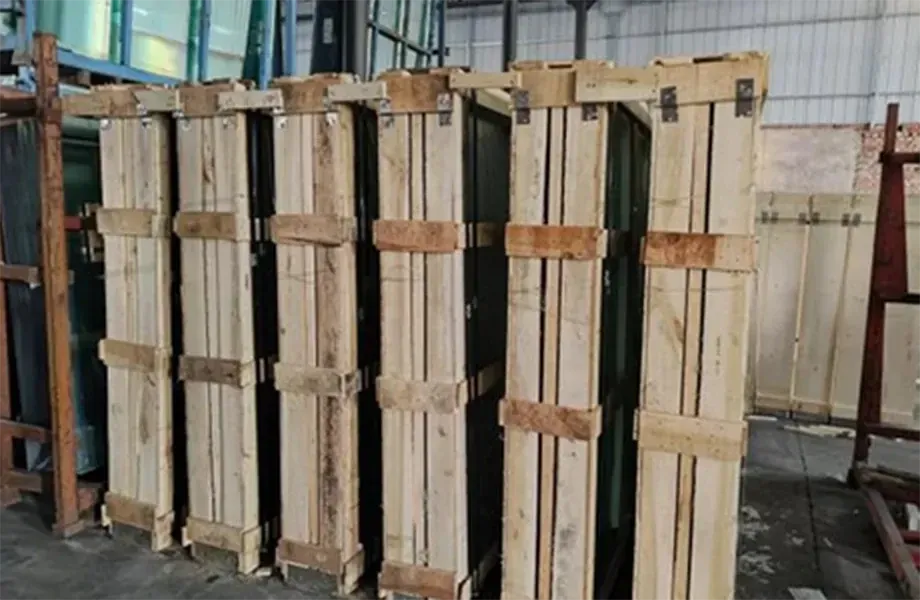Nov . 12, 2024 02:42 Back to list
annealed float glass
Understanding Annealed Float Glass Properties, Production, and Applications
Annealed float glass is an essential material commonly used in a variety of applications across the construction and manufacturing industries. Its unique properties and production methods make it a versatile choice for windows, doors, facades, and various decorative elements. In this article, we will explore the characteristics of annealed float glass, the production process, and its numerous applications.
What is Float Glass?
Float glass is produced through a process where molten glass is floated on top of molten tin, creating a smooth and uniform thickness. This method results in a glass sheet that is free of distortions and bubbles, providing exceptional clarity. The term float comes from the nature of the manufacturing process, where the glass floats on the tin, creating even surfaces and consistent thickness.
Annealing Process
The term annealed refers to the heat-treatment process that glass undergoes after its formation. During annealing, the glass is gradually cooled in a controlled environment, helping to relieve internal stresses created during production. This cooling process is critical as it enhances the strength and stability of the glass, reducing the likelihood of breakage due to thermal shock or stress.
The annealing process usually takes place in an annealing lehr, which is a long, controlled furnace. The temperature within the lehr is carefully regulated to ensure that the glass cools evenly and slowly. This step not only improves the quality of the glass but also allows for easier handling and fabrication in subsequent processes.
Properties of Annealed Float Glass
Annealed float glass possesses several distinct properties that make it appealing for various applications
1. Optical Clarity One of the primary advantages of float glass is its clarity. It allows for maximum light transmission, making it an ideal choice for applications such as windows and display cases.
2. Uniform Thickness The floating process ensures that the glass has a consistent thickness, which is essential for structural integrity and aesthetics. This uniformity is particularly important in architectural applications.
3. Chemical Resistance Float glass is inert and resistant to many chemicals, making it suitable for environments where exposure to corrosive substances may occur.
annealed float glass

4. Versatility Annealed float glass can be easily cut, tempered, laminated, or coated to meet specific design requirements. This versatility enhances its usability across various sectors.
Applications of Annealed Float Glass
Annealed float glass is used in various sectors due to its advantageous properties. Some common applications include
1. Residential and Commercial Windows Its clarity and thermal performance make annealed float glass an excellent choice for windows in homes, offices, and commercial buildings.
2. Glass Doors Whether used in entryways or partitioning, the aesthetic appeal and strength of annealed float glass make it ideal for glass doors.
3. Facades and Curtain Walls The ability to support large spans and the attractive finish of float glass lends itself well to modern architectural designs.
4. Furniture and Displays The material is widely used in furniture design, including coffee tables and shelving, as well as display cases in retail environments.
5. Glass Art and Decor Artists often choose annealed float glass for its clear surface, which can be easily cut and manipulated for artistic creations.
Conclusion
Annealed float glass stands out as a crucial material, offering unmatched clarity, uniformity, and versatility. Its production process, characterized by the floating and annealing methods, results in a product that meets the rigorous demands of various industries. As architectural trends continue to evolve, the use of annealed float glass will remain significant, providing both functional and aesthetic benefits in our built environment. Whether it’s for a modern skyscraper or a simple storefront, annealed float glass continues to illuminate spaces and inspire designs worldwide.
-
Safety and Style with Premium Laminated Glass Solutions
NewsJun.24,2025
-
Reinvents Security with Premium Wired Glass
NewsJun.24,2025
-
Premium Float Glass Line for Modern Architecture
NewsJun.24,2025
-
Low Emissivity Glass for Energy-Efficient Architecture
NewsJun.24,2025
-
High-Performance Insulated Glass Solutions for Modern Architecture
NewsJun.24,2025
-
Elevates Interior Style with Premium Silver Mirror
NewsJun.24,2025
Related PRODUCTS














